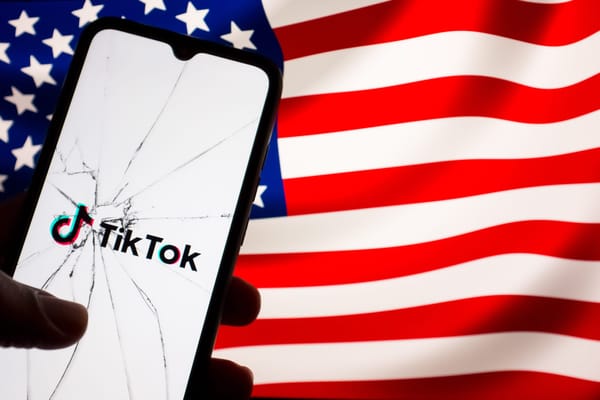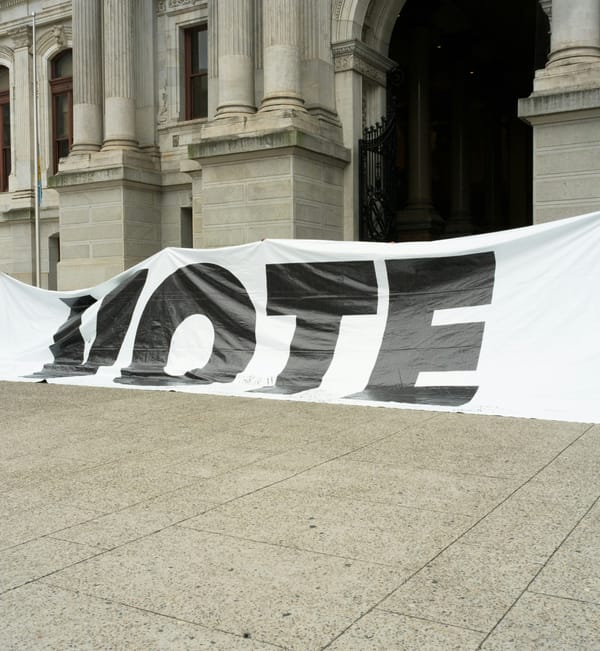🚨 Mark in the metaverse
An interview with Facebook's CEO about the company's next big initiative

As June came to an end, Facebook CEO Mark Zuckerberg told his employees about an ambitious new initiative. The future of the company would go far beyond its current project of building a set of connected social apps and some hardware to support them. Instead, he said, Facebook would strive to build a maximalist, interconnected set of experiences straight out of sci-fi — a world known as the metaverse.
The company’s divisions focused on products for communities, creators, commerce, and virtual reality would increasingly work to realize this vision, he said in a remote address to employees. “What I think is most interesting is how these themes will come together into a bigger idea,” Zuckerberg said. “Our overarching goal across all of these initiatives is to help bring the metaverse to life.”
The metaverse is having a moment. Coined in Snow Crash, Neal Stephenson’s 1992 sci-fi novel, the term refers to a convergence of physical, augmented, and virtual reality in a shared online space. Earlier this month, the New York Times explored how companies and products including Epic Games’ Fortnite, Roblox, and even Animal Crossing: New Horizons increasingly had metaverse-like elements. (Epic Games CEO Tim Sweeney has been discussing his desire to contribute to a metaverse for many months now.)
In January 2020, an influential essay by the venture capitalist Matthew Ball set out to identify key characteristics of a metaverse. Among them: it has to span the physical and virtual worlds; contain a fully fledged economy; and offer “unprecedented interoperability” — users have to be able to take their avatars and goods from one place in the metaverse to another, no matter who runs that particular part of it. Critically, no one company will run the metaverse — it will be an “embodied internet,” Zuckerberg said, operated by many different players in a decentralized way.
Watching Zuckerberg’s presentation, I couldn’t decide which was more audacious: his vision itself, or his timing. Zuckerberg’s announced intention to build a more maximalist version of Facebook, spanning social presence, office work, and entertainment, comes at a time when the US government is attempting to break his current company up. A package of bills making its way through Congress would potentially force the company to spin out Instagram and WhatsApp, and limit Facebook’s ability to make future acquisitions — or offer services connected to its hardware products.
And even if tech regulation stalls in the United States — historically not a bad bet — a thriving metaverse would raise questions both familiar and strange about how the virtual space is governed, how its contents would be moderated, and what its existence would do to our shared sense of reality. We’re still getting our arms wrapped around the two-dimensional version of social platforms; wrangling the 3D version could be exponentially harder.
At the same time, Zuckerberg said, the metaverse will bring enormous opportunity: to individual creators and artists; to individuals who want to work and own homes far from today’s urban centers; and to people who live in places where opportunities for education or recreation are more limited. A realized metaverse could be the next-best thing to a working teleportation device, he says. With the company’s Oculus division, which produces the Quest headset, Facebook is trying to develop one.
After I watched his speech, Zuckerberg and I had a conversation. (The metaverse being unavailable to us at press time, we used Zoom.) We discussed his vision for an embodied internet, the challenges of governing it, and gender imbalance in virtual reality today. And with President Biden’s fierce criticism of Facebook’s failures in removing anti-vaccine content in the headlines, I asked him about that, too.
“It's a little bit like fighting crime in a city,” he told me. “No one expects that you're ever going to fully solve crime in a city.”
The full conversation was published today on The Verge, where I’m a contributing editor, both as a full transcript and a bonus episode of The Vergecast. I hope you’ll read or listen to the whole thing, but here were some comments that stood out to me:
On Facebook’s future: “I think over the next five years or so, in this next chapter of our company, I think we will effectively transition from people seeing us as primarily being a social media company to being a metaverse company.”
On the inadequacy of mobile phones: “We're basically mediating our lives and our communication through these small, glowing rectangles. I think that that's not really how people are made to interact. A lot of the meetings that we have today, you're looking at a grid of faces on a screen. That's not how we process things, either.”
On his earliest dreams about virtual reality: “I've been thinking about some of this stuff since I was in middle school and just starting to code. I remember when I was in math class, I would have my notebook and I'd basically just sit there and write code and ideas for things I wanted to go code when I got home from school that day. And some of them I was able to do back then, but one of the things that I really wanted to build was basically the sense of an embodied internet where you could be in the environment and teleport to different places and be with friends. …. I've thought that this would be the holy grail of social interactions from well before when I started Facebook.”
On hardware challenges in the metaverse: “You're basically cramming all of these materials to build what we would've thought of as a supercomputer 10 years ago into the frame of glasses that are about five millimeters thick. … We tend to really celebrate things that are big, right? But I actually think miniaturizing things and getting a supercomputer to fit into a pair of glasses is actually one of the bigger challenges.”
On what he has learned since 2016: “One lesson that I've taken from running Facebook over the last five years is that I used to think about our job as building products that people love to use. But you know, now I think we just need to have a more holistic view of this. It's not enough to just build something that people like to use. It has to create opportunity and broadly be a positive thing for society in terms of economic opportunity, in terms of being something that, socially, everyone can participate in, that it can be inclusive.”
On President Biden saying, and later walking back, the idea that vaccine misinformation on Facebook is “killing people”: “When you think about the integrity of a system like this, it's a little bit like fighting crime in a city. No one expects that you're ever going to fully solve crime in a city. The police department's goal is not to make it so that if there's any crime that happens, that you say that the police department is failing. That's not reasonable. I think, instead, what we generally expect is that the integrity systems, the police departments, if you will, will do a good job of helping to deter and catch the bad thing when it happens and keep it at a minimum, and keep driving the trend in a positive direction and be in front of other issues too. So we're going to do that here.”
On playing baseball: “So [when] I grew up, I played Little League baseball in my town, not because I am made to be a baseball player, but because that was one of the few activities that was available. There was, I think, one other kid in the town who was interested in computers — I was lucky that there was one other kid. And that was my world. If I wanted to call someone who I met when I was at camp or something and wanted to stay in touch with a friend, I would have to pay a lot more because long-distance calls cost more than talking to people nearby.
I think one of the things that is most magical about the present, and that I think is going to get even more so, is that flattening out distance creates a lot more opportunities for people. Not just in the sense that a version of me growing up today wouldn't be stuck playing Little League, that I'd get to find people who are interested in the same things, so I could explore coding and have a much more vibrant community around that, or surfing, or whatever the thing is that you're interested in. I think that that's probably quite compelling and positive.”
There’s a lot more in here — I hope you’ll check it out and let me know what you think.
The Ratio
Today in news that could affect public perception of the big tech companies.
⬇️ Trending down: Anti-vaxx groups on Facebook are evading enforcement actions by using coded language. “Dance party” and “dinner party” sometimes don’t mean what they seem to on Facebook, according to this report. (Ben Collins and Brandy Zadrozny / NBC)
Bonus links
⭐ Google’s AI research lab, DeepMind, created “the most comprehensive map of human proteins to date using artificial intelligence.” “By the end of the year, DeepMind hopes to release predictions for 100 million protein structures, a dataset that will be “transformative for our understanding of how life works,” according to Edith Heard, director general of the EMBL.” (James Vincent / The Verge)
Meanwhile: Google co-founder Larry Page appears to be riding out the pandemic in Fiji. (Hugh Langley / Insider)
India accused Amazon of concealing relevant facts and making false statements when it bought a large stake in commerce company Future Group. It complicates Amazon’s efforts to prevent Future from selling its retail unit to rival Reliance. (Aditya Kalra / Reuters)
Oculus is making it easier to invite friends into games. Helpful for, say, building a metaverse. (Cameron Faulkner / The Verge)
Twitter may be adding sound effects to Spaces. I have been waiting a full year for someone in the social audio world to do this. (Kim Lyons / The Verge)
And: Twitter is showing some users downvote buttons to help tweak its ranking algorithms. (Ian Carlos Campbell / The Verge)
But: The beta TweetDeck redesign is “so bad I’m ready to ragequit,” says The Verge’s Sean Hollister: “I’m now worried Twitter has forgotten why we use TweetDeck.”
Those good tweets
Instead of sleep, the human body should survive on 7-10 hours of dissociative phone time
— Allie Levitan (@alliegeelev) 1:42 PM ∙ Jul 21, 2021
me, looking at $900,000 houses with $76 in my bank account: interesting design choice but ok
— witt (@50FirstTates) 2:21 PM ∙ Jul 21, 2021
inside you there are three women
— sarah m. albers ☠️ (@sarahmalbers) 3:07 AM ∙ Jul 21, 2021
young jeff bezos looking like someone buffy would have to fight mid season
— george fletcher (@saagifletch) 4:56 PM ∙ Jul 20, 2021
Talk to me
Send me tips, comments, questions, and metaverse governance documents: casey@platformer.news.





